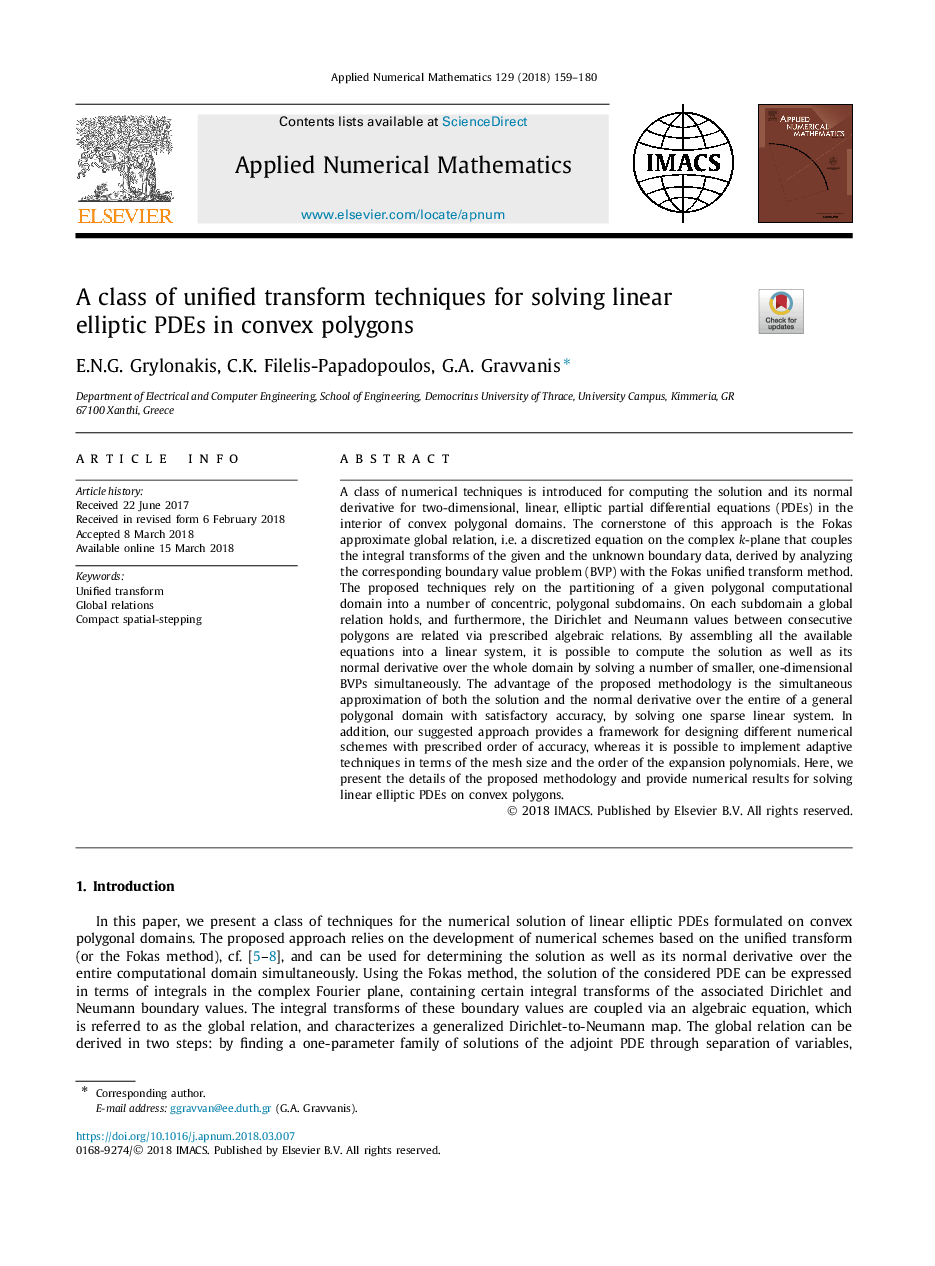| Article ID | Journal | Published Year | Pages | File Type |
|---|---|---|---|---|
| 8902621 | Applied Numerical Mathematics | 2018 | 22 Pages |
Abstract
A class of numerical techniques is introduced for computing the solution and its normal derivative for two-dimensional, linear, elliptic partial differential equations (PDEs) in the interior of convex polygonal domains. The cornerstone of this approach is the Fokas approximate global relation, i.e. a discretized equation on the complex k-plane that couples the integral transforms of the given and the unknown boundary data, derived by analyzing the corresponding boundary value problem (BVP) with the Fokas unified transform method. The proposed techniques rely on the partitioning of a given polygonal computational domain into a number of concentric, polygonal subdomains. On each subdomain a global relation holds, and furthermore, the Dirichlet and Neumann values between consecutive polygons are related via prescribed algebraic relations. By assembling all the available equations into a linear system, it is possible to compute the solution as well as its normal derivative over the whole domain by solving a number of smaller, one-dimensional BVPs simultaneously. The advantage of the proposed methodology is the simultaneous approximation of both the solution and the normal derivative over the entire of a general polygonal domain with satisfactory accuracy, by solving one sparse linear system. In addition, our suggested approach provides a framework for designing different numerical schemes with prescribed order of accuracy, whereas it is possible to implement adaptive techniques in terms of the mesh size and the order of the expansion polynomials. Here, we present the details of the proposed methodology and provide numerical results for solving linear elliptic PDEs on convex polygons.
Related Topics
Physical Sciences and Engineering
Mathematics
Computational Mathematics
Authors
E.N.G. Grylonakis, C.K. Filelis-Papadopoulos, G.A. Gravvanis,
